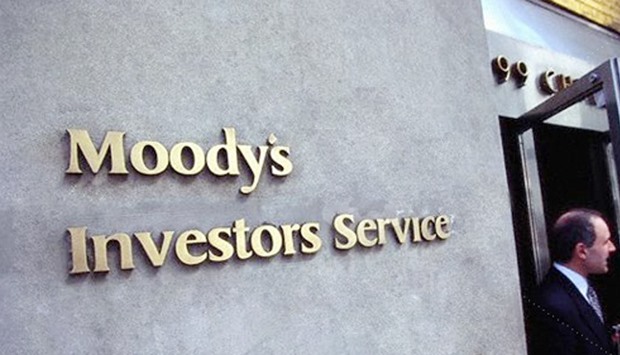Sukuk issuance will stabilise after growing for four consecutive years, supported by the deficit financing needs of some GCC sovereigns, amid weaker oil prices and higher sukuk refinancing, Moody’s Investor Service has said in a report.
Moody’s expects sukuk issuance of around $180bn in 2020, after a 36% rise in 2019 to $179bn.
“Continued focus on this industry and increased activity by the governments of the core Islamic finance markets, regionally and internationally, will support issuance. The deficit financing needs of some GCC sovereigns, amid weaker oil prices and higher sukuk refinancing, will also provide support.
“Corporate issuance in asset-backed sukuk will remain limited because of more attractive conventional market opportunities.
Nevertheless, sukuk issuance from these sectors could help to underpin the industry’s longer-term potential,” Moody’s said in a report titled ‘Cross Sector – Islamic Finance’ yesterday.
Moody’s expects sukuk issuance will stabilise in 2020 after growing a robust 36% to around $180bn in 2019 – the fourth consecutive year of expansion.
Of this, around $110bn had maturities of more than one year at the time of issuance, the highest volume of long-term issuance to date. A 55% increase in short-term issuance, primarily from Malaysia and Indonesia, was the biggest driver of the recent growth.
Global sovereign sukuk issuance, including long- and short-term sukuk from national governments, central banks and supranational organisations, increased by 31% to $119bn in 2019, from $91bn in 2018.
Despite lower oil prices, Moody’s expects sukuk issuance to remain broadly stable around the $180bn mark in 2020. This will be driven largely by sovereigns, given their higher financing needs owing to lower oil prices and a slowdown in fiscal consolidation, and as major issuers gradually increase the share of sukuk in fiscal deficit financing.
In the medium term, the report noted that gross issuance will rise further as GCC sukuk issued after 2015 begin to mature and are refinanced via new issuance.
That said, Moody’s noted downside risks are rising in the short term because of the fallout from the coronavirus outbreak, as prolonged market disruption could dissuade issuers from coming to market.
Corporate and asset-backed sukuk activity was muted in 2019 because of more attractive conventional market opportunities, and Moody’s expects this to remain the case in 2020.
Longer term, issuance in these sectors could be a source of growth, underpinning the industry’s potential.
Specialised government-linked entities, such as quasi-sovereigns, central banks and supranational entities, will also support sukuk market activity.
In the GCC, the recovery in oil prices in the second half of 2017 had boosted revenue and reduced gross financing needs. The aggregated fiscal deficit of the six GCC countries fell even further in 2019 despite softening oil prices, driven mainly by spending cuts relative to the approved budget in one Gulf country.
In addition, Moody’s expects that GCC sovereigns will continue shifting their funding toward a more diverse mix of conventional and Islamic instruments, reflecting cultural affinity to the sector and to support their respective Islamic finance agendas and efforts to develop local Islamic debt markets.
Seeing long-term potential in green and sustainable sukuk, Moody’s said, “Still very much in its infancy, the green, social and sustainability sukuk market holds strong long-term potential, and we expect a further pickup in transactions in 2020.”
Sustainable sukuk issuance came in at an estimated $3.5bn in 2019, up from $1.8bn the previous year, according to ‘Dealogic’ data.
However, the report noted this accounted for just 1.1% of total sustainable bond issuance globally in 2019, reflecting the germinal state of the market.
Moody’s said green sukuk will benefit from robust growth in institutional investor demand for environmental, social and governance (ESG) products, given the natural crossover of sustainable investing and Islamic finance in integrating societal impacts. In common with investors in Shariah-compliant products, some sustainable investors use screening strategies to avoid certain activities and products to better align themselves with the values and goals of developing a sustainable society.
For example, Islamic finance principles prohibit investments in certain industries that are forbidden (haram), such as tobacco, alcohol, gambling and weapons, as well as a range of other products and activities.
Islamic finance products are selected to avoid such industries and ensure compliance with Shariah principles, similar to some practices used in sustainable investment.
Indeed, sukuk funding of environmentally sustainable projects, such as renewable energy assets, appeals to both traditional Islamic investors and conventional investors such as pension funds, asset managers and financial institutions, Moody’s noted.

file picture

